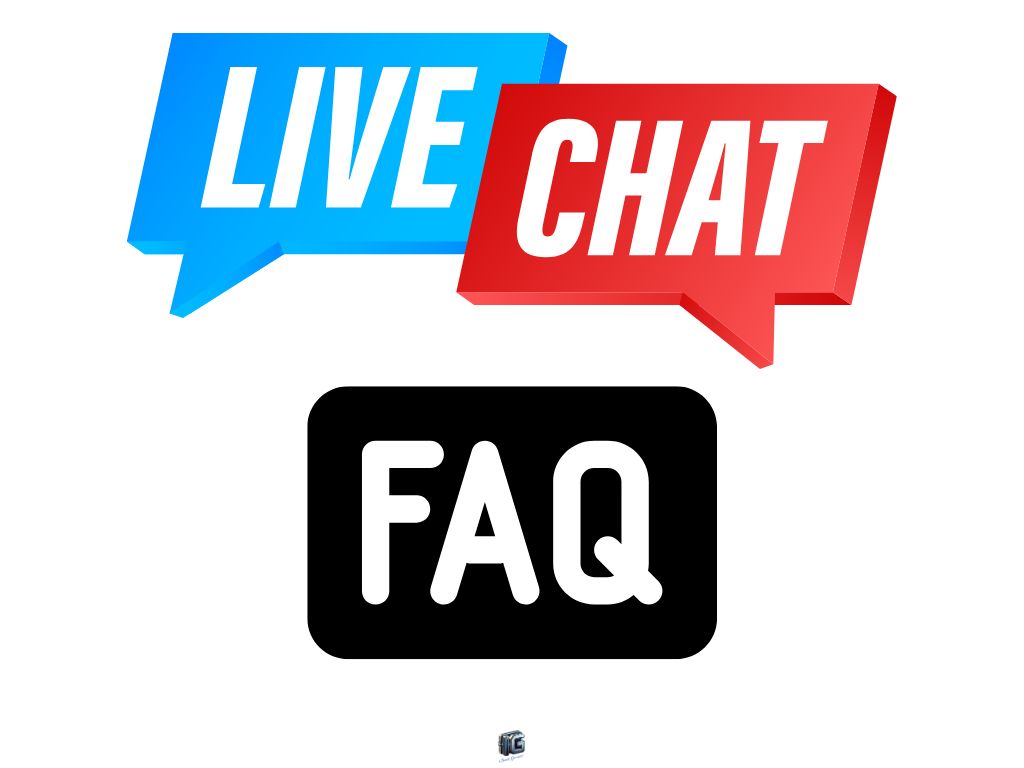Live chat jobs are one of the fastest-growing remote work opportunities available today. These roles allow you to help customers, answer questions, and provide support all through online chat platforms, without having to pick up a phone.
For job seekers looking for flexibility, no-phone work, and entry-level online income, live chat support offers a practical and legitimate option.
You’ll find opportunities across e-commerce, tech, and customer service companies, many of which offer full-time, part-time, or freelance roles with real earning potential.
In this guide, you’ll learn exactly what live chat jobs involve, what skills you need, where to find verified openings, how much you can earn, and how to avoid common scams along the way.

Key Takeaways
- Live chat jobs let you work remotely, helping customers without phone calls.
- Entry-level roles pay between $12–$25/hour depending on your skills and experience.
- Tasks include answering questions, solving issues, and providing chat-based support.
- Strong writing, empathy, and basic tech skills are key to success.
- Verified job listings can be found on remote job boards and trusted company sites.
- Optional training or certifications can boost your chances of getting hired.
- Watch for scams real jobs never ask for upfront payments or promise unrealistic earnings.
What Are Live Chat Jobs and What Do They Involve?
Live chat jobs are remote roles where you provide real-time support to customers through an online chat platform. Instead of answering phones or attending in-person meetings, you communicate directly with users by typing responses in a live chat window.
These roles are in high demand across industries like e-commerce, tech, SaaS, and digital services where fast, convenient support is a key part of the customer experience.
What You’ll Typically Do in a Live Chat Role:
- Answer product or service questions in real time
- Help customers with orders, billing, or account issues
- Troubleshoot common problems or escalate complex ones
- Respond to multiple chat conversations at once
- Use scripts, templates, or saved replies to improve response time
- Log chat summaries or customer data into a CRM system
Tools You Might Use:
- Live chat software: Intercom, Zendesk, LiveChat, Tidio
- CRM systems: HubSpot, Salesforce
- Helpdesk tools: Freshdesk, Help Scout
- Internal knowledge bases or canned responses
Live chat support is often fast-paced, but it allows for structured workflows and repeatable systems making it ideal for people who enjoy helping others and working in a process-driven environment.
Why Live Chat Jobs Are in Demand Right Now
As more businesses move online, customer expectations are changing. People want fast, easy access to support without waiting on hold or navigating complicated phone menus. That shift has made live chat one of the most in-demand support channels across industries.
Companies are hiring more live chat agents because it’s efficient, cost-effective, and available 24/7. For workers, it opens the door to flexible, remote roles that don’t require a phone or traditional office setup.
What’s Driving the Demand:
- Growth in E-commerce
Online stores need real-time support to answer product questions, guide customers through checkout, and reduce abandoned carts. - Shift to Remote Workforces
With more businesses going virtual, support teams are being built entirely online live chat makes it easy to manage distributed staff. - Lower Cost, Higher Efficiency for Businesses
One live chat agent can often handle 2–3 conversations at once, making it more efficient than traditional phone support. - 24/7 Customer Expectations
Brands are now expected to be “always on.” Live chat allows companies to offer support during nights, weekends, and across time zones.
For companies, live chat improves conversion and customer satisfaction. For job seekers, it means growing access to flexible roles that are easy to train into and easier to land than more technical positions.

What Skills, Training, or Experience Do You Need?
Live chat jobs are beginner-friendly, but employers still look for specific skills that ensure smooth, professional communication with customers. The good news? You don’t need a degree or years of experience just the ability to write clearly, stay calm under pressure, and handle multiple tasks at once.
Essential Skills to Succeed in Live Chat Roles
- Clear Written Communication
You must be able to write in a friendly, professional tone that’s easy to understand. Good grammar, spelling, and punctuation matter. - Typing Speed and Accuracy
Since you’ll be chatting in real time often with more than one customer being a fast, accurate typist is a major plus. - Multitasking
You might be switching between chat windows, looking up answers, and logging notes all at once. - Empathy and Patience
Customers may be frustrated or confused. Showing empathy and remaining calm under pressure will set you apart. - Basic Tech Comfort
You’ll be working inside tools like chat platforms, CRMs, or ticketing systems. You don’t need to be a tech expert but confidence with software is a must.

Recommended Training (Optional but Valuable)
If you want to stand out or increase your earning potential, consider a short course or certification in:
- Customer service fundamentals (Coursera, HubSpot Academy, LinkedIn Learning)
- CRM platforms like Zendesk or HubSpot
- Typing speed improvement (free sites like TypingTest.com or Keybr)
Most companies provide on-the-job training for their systems but showing up with a solid skill base and basic tool knowledge makes hiring you an easy “yes.”
Types of Live Chat Jobs You Can Apply For
Live chat jobs come in different forms depending on the company’s needs. Some roles are purely about customer service, while others lean into tech, sales, or even community management. Understanding the differences helps you choose a path that fits your strengths, interests, and career goals.
Here are the most common types of live chat jobs and what to expect from each:
💬 1. Customer Support Chat Agent
What You’ll Do: Handle questions about orders, accounts, shipping, returns, and policies. Often involves troubleshooting basic issues and guiding customers through online processes.
Who Hires: E-commerce brands, SaaS companies, subscription services, financial platforms.
Best For: Beginners with strong communication skills and a calm, helpful demeanor.
Why It’s a Good Fit: Great starting point. Often includes training and room to grow into more advanced support or QA roles.
🖥️ 2. Technical Support Chat Agent
What You’ll Do: Help users solve problems related to software, logins, device compatibility, or account setup. Often requires following scripts or using internal documentation to provide solutions.
Who Hires: Tech startups, hosting companies, app providers, B2B software firms.
Best For: Those with basic technical knowledge, logical thinking, and strong typing skills.
Why It’s a Good Fit: Higher pay potential and opportunity to move into Tier 2 support or product roles.
🛒 3. E-commerce Live Chat Assistant
What You’ll Do: Answer product-related questions, assist with sizing, provide inventory updates, offer promo codes, and guide shoppers through checkout.
Who Hires: Online stores, dropshipping businesses, Shopify stores, fashion brands.
Best For: Fast learners who enjoy helping customers make purchase decisions.
Why It’s a Good Fit: Often includes upselling bonuses or commissions and requires minimal tech skills.
🧠 4. Pre-Sales or Product Inquiry Specialist
What You’ll Do: Respond to questions from leads who are considering a purchase. May involve product comparisons, pricing breakdowns, or linking to demos and FAQs.
Who Hires: Digital course creators, SaaS companies, coaches, consultants, and product-based businesses.
Best For: Persuasive communicators who are product-savvy and can guide people to “yes.”
Why It’s a Good Fit: Often aligned with marketing/sales and can lead to higher-paying conversion-based roles.
🌐 5. Community Chat Moderator
What You’ll Do: Manage conversations in Facebook groups, Discord chats, membership sites, or private forums. Keep discussions on topic, resolve conflicts, and support community engagement.
Who Hires: Coaching brands, online education platforms, influencers, and niche memberships.
Best For: Detail-oriented, people-focused individuals who enjoy online interaction and setting boundaries.
Why It’s a Good Fit: Flexible hours, fun atmosphere, and insight into how online communities grow.
📌 Tip: Many people start in customer support and transition into more specialized or higher-paying live chat roles once they’ve built confidence and experience.
Another entry-level path into remote work is data entry jobs, which offer similar flexibility without the need for direct communication.

Where to Find Real, Verified Live Chat Jobs
Finding a live chat job isn’t just about searching online, it’s about knowing where the real opportunities are and how to identify the ones worth applying for. Here are the most trusted places to find legitimate work, along with examples of companies hiring and key points to keep in mind.
1. Remote Job Boards
Remote-first job boards are a strong starting point. These platforms specialize in virtual roles and often list current openings for live chat support agents.
Popular options:
- We Work Remotely – One of the largest remote job boards, regularly updated.
- Remote.co – Includes a dedicated category for customer support roles.
- Working Nomads – Aggregates remote job listings from multiple sources.
- Dynamite Jobs – Focuses on remote-friendly startups and verified companies.
Use keyword variations like “live chat support,” “remote chat agent,” or “customer service chat” to find relevant listings.
2. Company Career Pages
Some companies don’t advertise on public job boards, they post roles directly on their websites. These listings are often more competitive but come straight from the source.
Companies that frequently hire:
- Apple – Their “At Home Advisor” program includes live chat support.
- Zapier – A fully remote company with frequent support openings.
- Shopify – Often hires for customer service advisor positions with live chat components.
- ModSquad – Provides outsourced moderation and support services for various industries.
- LivePerson, Concentrix, OutPLEX – Specialized support firms known to hire remote chat agents.
Check these pages regularly or set up alerts to apply as soon as roles open.

3. Freelance and Gig Platforms
If you’re looking to build experience or want more control over your schedule, freelance platforms offer flexible entry points into live chat work.
Consider starting with:
- Upwork – Many clients look for short- and long-term support freelancers.
- Fiverr – You can create a service offering live chat for e-commerce stores or online businesses.
- PeoplePerHour – A good option for per-project or hourly chat support gigs.
These platforms are ideal for building a portfolio, earning reviews, and gaining experience while working on your terms.
4. Virtual Staffing Agencies
These agencies match remote workers with companies that need live chat agents. They handle the hiring process, sometimes provide training, and may offer long-term or part-time roles.
Agencies to explore:
- Arise – Offers client support roles with flexible schedules.
- ModSquad – Contracts remote moderators and chat agents.
- SupportNinja – Focuses on customer experience for digital brands.
- Working Solutions – Hires for U.S.-based remote chat and support roles.
Agencies can be a good option if you prefer predictable work over freelancing but still want to stay remote.
How to Avoid Scams and Low-Quality Listings
Live chat jobs are in demand, which unfortunately attracts scam postings. Here’s how to protect yourself during your job search:
- Never pay to apply, access training, or unlock listings
- Avoid any job that doesn’t clearly identify the company or responsibilities
- Be skeptical of high-income claims with vague details
- Research employers using platforms like Glassdoor or Trustpilot
- If something feels off, trust your instincts and move on
Quality live chat jobs are out there if you know where to look and how to filter what’s real from what’s risky. Prioritize trusted sources, do your research, and be selective. The right opportunity is worth the wait.

How Much Can You Earn with Live Chat Jobs
Live chat jobs offer a flexible way to earn income from home, and while they’re often considered entry-level, pay can vary widely depending on the company, the role, and your experience level. Understanding what to expect and what factors influence pay can help you set realistic goals and identify higher-paying opportunities.
Typical Pay Ranges
Most live chat roles fall into one of three categories:
- Entry-Level Support Roles: $12–$16 per hour These roles usually focus on answering basic customer questions, handling returns, and providing general account assistance.
- Specialized or Technical Chat Support: $17–$25+ per hour These positions often involve more in-depth product knowledge, troubleshooting, or software-related questions.
- Freelance or Contract-Based Work: Varies Freelancers may earn more by setting their own rates or offering package-based services. However, they also manage their own workload and client acquisition.
In some cases, pay may be performance-based, with bonuses tied to response time, customer satisfaction scores, or conversion metrics.
Factors That Affect Your Earnings
- Experience and Efficiency: More experienced agents who can handle multiple chats at once and do so efficiently can often negotiate better rates or earn performance bonuses.
- Industry: Roles in tech, SaaS, or financial services tend to pay more than general retail or hospitality support.
- Shift Type Evening, overnight, or weekend shifts may come with higher pay rates due to lower competition and increased coverage needs.
- Work Arrangement: Full-time employees may receive benefits and a steady paycheck, while freelancers have the potential to earn more but manage more risk.
Ways to Increase Your Income Over Time
- Build experience in a specific niche (e.g., tech support or sales chat)
- Learn the tools companies use (like Zendesk, Intercom, or Gorgias)
- Improve your typing speed and ability to manage multiple conversations
- Seek long-term contracts or recurring clients rather than one-off projects
- Add complementary skills like email support, CRM management, or basic automation tools
While live chat work won’t make you rich overnight, it offers a dependable income stream with room to grow. Many remote professionals start in live chat and later expand into higher-paying roles like team lead, onboarding specialist, or customer experience strategist.

Benefits and Flexibility of Working Live Chat Jobs
Live chat jobs are one of the most accessible and adaptable ways to earn income online. They offer structure and stability while still giving you control over where, when, and how you work. Whether you’re starting your remote career or need a role that fits around other commitments, live chat support is worth serious consideration.
1. Remote Work Without the Complexity
These roles are built for working from home. All you need is a reliable internet connection, a quiet space, and a computer. There’s no commuting, dress code, or office politics just straightforward online work you can do from anywhere.
2. No Phone Calls, No Video Meetings
If you prefer not to be on calls all day, live chat jobs offer a clear advantage. You communicate through written messages, not voice or video, which makes these roles ideal for:
- Individuals in shared or noisy environments
- Those with social anxiety or phone fatigue
- Workers who thrive in text-based communication
This also reduces job stress for many people, especially those transitioning from traditional customer service roles.
3. Flexible Scheduling Options
Depending on the employer, you may find:
- Fixed shifts (set weekly hours)
- Rotating shifts (including evenings or weekends)
- Flexible, project-based work (freelance platforms or agencies)
This makes live chat jobs suitable for people with other commitments students, parents, caregivers, or side hustlers looking to earn extra income on their own schedule.
4. Easy to Get Started
You don’t need a degree or advanced technical skills to begin. Many companies provide onboarding or training, and as long as you’re a good communicator and can follow systems, you’re qualified to apply.
It’s one of the few online jobs where soft skills like empathy, clarity, and patience matter more than your resume.
5. Built-In Path to Career Growth
While many start in entry-level roles, live chat support can lead to:
- Team lead or shift supervisor positions
- Specialized roles like onboarding or retention
- Career paths in customer success, community management, or operations
As you gain experience and learn the tools, you open the door to more advanced remote roles and long-term income opportunities.
Live chat support combines accessibility with upward mobility. It’s a reliable way to enter the remote workforce, with flexibility and room to grow built in from the start.

Is a Live Chat Job Right for You?
Live chat jobs can be a great fit for many people but like any role, they’re not for everyone. Understanding what the work actually involves helps you decide if it matches your strengths, preferences, and long-term goals.
Who These Jobs Are Best Suited For
Live chat roles are ideal for individuals who:
- Prefer written communication over phone or video
- Want flexible, remote work without needing a degree
- Have good grammar, patience, and attention to detail
- Can stay calm under pressure and juggle multiple tasks at once
- Enjoy solving problems and helping others feel supported
These jobs are especially appealing to parents, students, digital nomads, and anyone transitioning into online work from traditional service roles.
What You’ll Like About It
- You can work from anywhere with a stable internet connection
- No phone calls, meetings, or client-facing calls required
- Opportunity to build experience without formal credentials
- Clear structure and repeatable tasks for those who prefer routine
- Direct path to freelance, contract, or full-time employment
Potential Downsides to Consider
- Handling multiple conversations can be mentally draining
- Some roles involve night or weekend shifts
- Repetitive questions may become monotonous over time
- Performance metrics (response time, satisfaction scores) are often tracked closely
- Entry-level pay may start lower, especially for general support roles
If you thrive in fast-paced digital environments, communicate well in writing, and are looking for flexible online work, a live chat job may be exactly the right starting point.

Frequently Asked Questions (FAQs)
1. Do I need experience to get a live chat job?
No. Many live chat roles are entry-level and provide training. If you have strong writing skills, patience, and basic tech confidence, you can qualify even without prior customer service experience.
2. What equipment or software do I need to work live chat support?
You’ll typically need a reliable internet connection, a laptop or desktop computer, and a quiet workspace. Some employers may also require the use of specific chat tools like Zendesk, Intercom, or LiveChat.
3. Are live chat jobs flexible or do they require set shifts?
It depends on the employer. Some offer fixed schedules, while others provide part-time, freelance, or evening/weekend shifts. Freelance platforms often give the most flexibility.
4. How do I avoid scams when applying for live chat jobs?
Avoid any job that asks for upfront payments, has vague descriptions, or promises unrealistic income. Stick to trusted job boards and company career pages, and research employers before applying.
5. Can I grow or get promoted from a live chat position?
Yes. Many live chat agents move into higher-paying roles like team lead, onboarding specialist, or customer success manager. Gaining experience and learning new tools opens up career advancement.

Conclusion
Live chat jobs offer one of the most practical and accessible ways to earn income online. With no phone calls, flexible hours, and a growing demand across industries, these roles provide real opportunities for beginners and experienced professionals alike.
You don’t need a degree or years of experience to get started. What matters most is your ability to communicate clearly, stay organized, and show up with consistency. As you build experience, you can grow into higher-paying roles or use live chat as a stepping stone to other remote career paths.

If you’re ready to begin, choose one of the platforms listed in this guide, polish your resume or freelance profile, and apply to three real opportunities this week. The sooner you start, the sooner you can land a job that works on your terms.
For other flexible work-from-home roles, you might also consider virtual assistant jobs, which often include tasks like email management, scheduling, and admin support.
2 Comments
Virtual Assistant Jobs: Get Started + What You Need to Know - Ismel Guerrero. · April 3, 2025 at 11:54 am
[…] Some virtual assistants specialize in customer support. If you’d rather focus strictly on chat-based communication, consider these live chat jobs. […]
Data Entry Remote Jobs: You Need To Know This in 2025 - Ismel Guerrero. · April 6, 2025 at 12:16 am
[…] other legitimate remote opportunities, see our guide to live chat jobs and where to apply […]